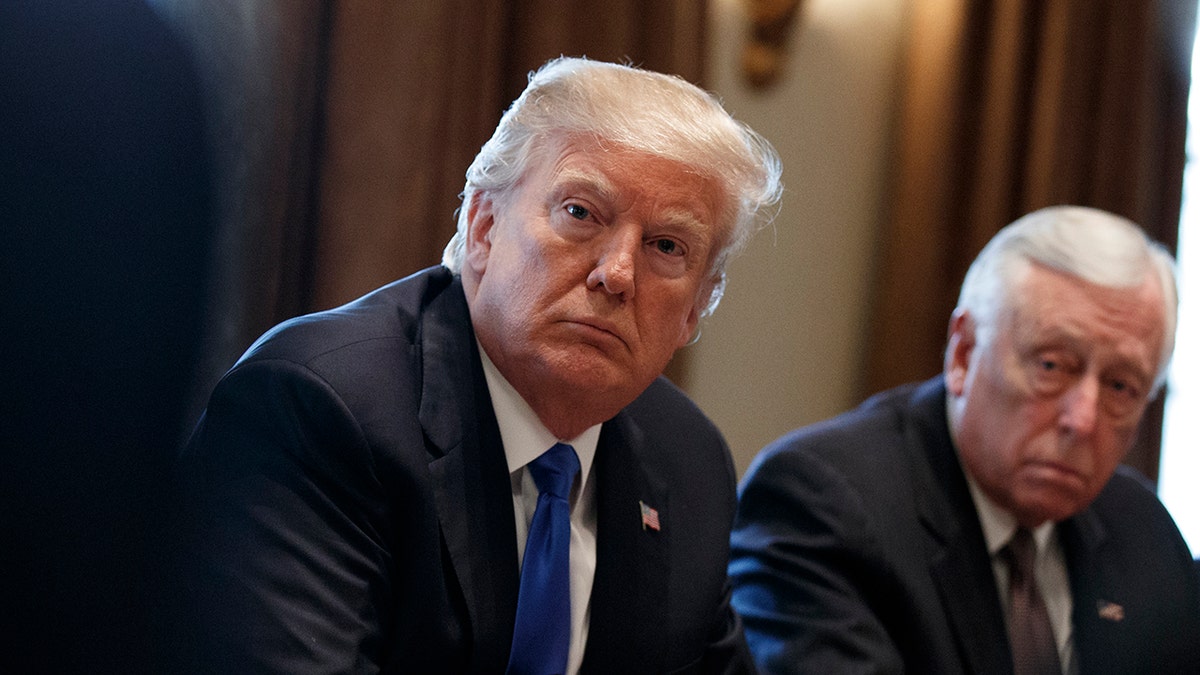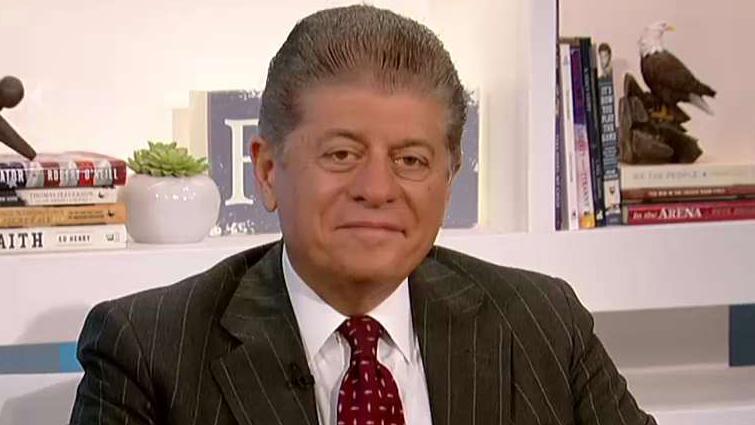
President Donald Trump prompts heated debate over 'unmasking' after ordering new policy procedures. (AP)
President Donald Trump is giving U.S. intelligence agencies 30 days to publicly release policy outlining procedures for responding to requests for "unmasking," or naming Americans listed in classified, redacted reports.
Trump's order followed a letter that Director of National Intelligence Dan Coats wrote last month to Congress. Coats told lawmakers he would tighten rules for providing government officials the identities of Americans concealed in intelligence reports. Coats' policy would aim to toughen existing safeguards to ensure that names aren't disclosed for political reasons, especially during presidential transitions.
Many Republicans have claimed the Obama administration improperly released the identities of members of Trump's presidential transition team mentioned in intelligence reports, putting their safety at risk. Democrats insisted there was no evidence the identities of any Trump transition officials were improperly revealed. They said tough rules already have been in place.
Reports from September revealed that the former U.S. ambassador to the United Nations, Samantha Power, averaged more than one unmasking request for every working day in 2016 – and even sought information in the days leading up to President Trump’s inauguration, sources confirmed to Fox News.
Intelligence agencies said that in 2016, government officials requested to know the identities of more than 1,900 Americans whose information was swept up by National Security Agency (NSA) surveillance programs last year. The identities of U.S. citizens and legal permanent residents were found in 3,914 intelligence reports the NSA distributed in 2016. In 2015, government officials requested the unmasking of 2,232 identities.
Coats said the new procedures would further clarify existing rules, making clear that intelligence agencies could not engage in any intelligence activity, including dissemination of Americans' identities, to the White House for the purpose of influencing the U.S. political process. He said adequate justifications would be required for any requests.
"In addition, this policy will require heightened levels of approval for requests made during a presidential transition when these requests relate to known members of a president-elect's transition team," Coats wrote.
Fox News' Paulina Dedaj, John Roberts and The Associated Press contributed to this report.





